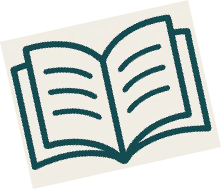Free Bible studies and sermon resources
© Learn Your Bible 2025 Michael Button


Learning Outcomes. This means what you should have learned on completion of the study or section of study. Ability to correctly answer the questions in the Learning Activities and Personal Assignments indicates that the outcomes have been achieved.
Bibliography and Glossary. A small letter g after a word means that a definition can be found in the Glossary and a small b refers the reader to the Bibliography. Both of these are towards the end of the Study Guide.
Biblical text is shown in italics.
Scripture references. Students are advised to read texts from their Bibles where instructed. Additional Bible references will be found in the footnotes. Students may choose to read the footnoted references, especially if they are uncertain about the statement being made, but they will not necessarily provide additional understanding to the statements.
These studies were written originally for small group Bible studies led by a facilitator, i.e. someone to guide the study through to keep it on track and to encourage relevant discussion. However, they are also suitable for individual study. Each study will take ninety minutes to two hours to complete but, since they are constructed in clearly defined portions, you can stop at the end of any section and continue later from where you left off.
From time to time you will see suggestions for discussions. Do not ignore the discussions if you are studying alone; instead, think carefully and prayerfully about the discussion topics, or maybe share them with a friend.
You will need, in addition to this Study Guide:
1. A Bible. Bible quotations in the notes are taken from the New King James Version unless otherwise stated, but you can use whatever translation you feel most comfortable in using.
2. A pencil and rubber (if you are studying from a hard copy). You are encouraged to write answers to questions in spaces provided in the Study Guide but you might want to change your answer after discussion. It will be easier to make changes if you use a pencil rather than a pen.
3. A notebook. You may want to make additional notes.
4. Most important of all – a desire to learn from God’s Word and to grow in applying its teaching to your own life.
Questions set during the studies are to help you concentrate your mind on the important points. You will find answers to these questions at the end of the Study Guide (but don’t look up the answer before attempting the question! you will only be denying yourself an important part of the learning experience.) Study groups may wish to work on these questions as a group or in pairs.
After every Study there are ten additional, multiple choice, questions called Personal Assignments for you to answer on your own at home. If you are studying this course in a study group, your facilitator might have an arrangement to mark them. Please attempt the questions, even if you are working alone, for they will help you to know if you have fully grasped the lessons. A list of answers is available on request, free of charge (see the Obtaining page). The only ‘rule’ for answering the Personal Assignment questions is that you receive no help from anyone else (apart from the Holy Spirit – you are allowed to pray for guidance in answering your questions!). You may consult your Bible, Bible aids and even the Study Guide to find your answers – you will not be cheating if you do so.
Now enjoy these studies, learn from them and put into practice what you have studied.
How to use the Study Guides
How to use them to best advantage
Conventions used in the Guides
Back to Top
Back to Top

 Back to Top
Back to Top
Back to Top
Back to Top